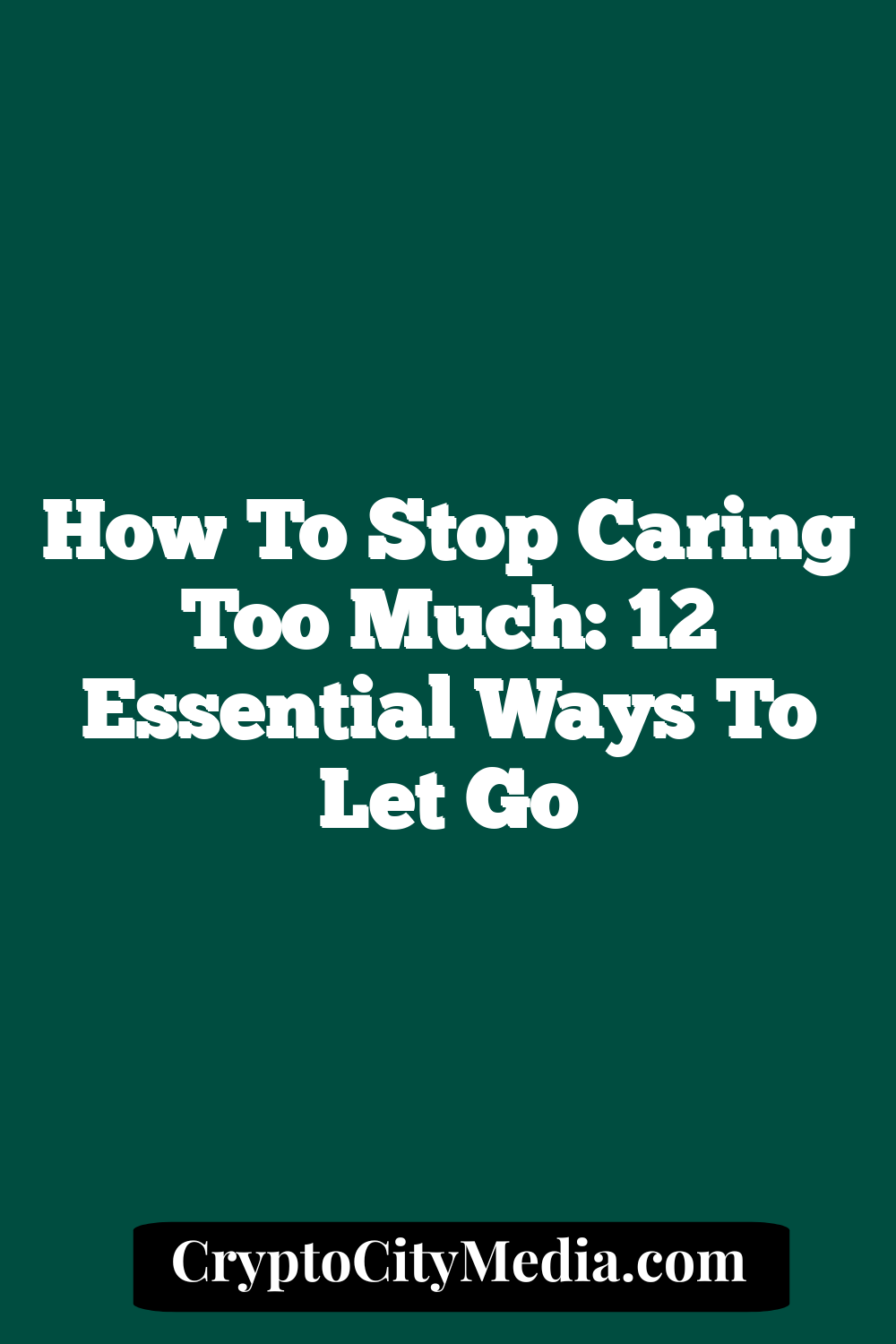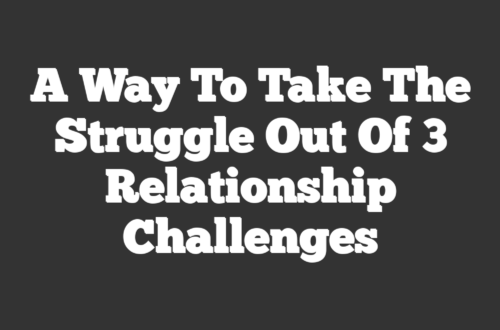
As a relationship coach with over 15 years of experience counseling couples, I’ve seen firsthand how caring too much can put a strain on people’s mental health and relationships. When you invest so much of yourself into worrying about others, you lose sight of your own needs. Over time, this leads to exhaustion, resentment, and lost happiness.
I myself have struggled with caring too much in the past. I would spend sleepless nights obsessing over my clients’ problems and put their priorities far above my own. Eventually, it led me to burnout. I had to step back and realize that I couldn’t pour from an empty cup or light the way for others if my own fire had gone out.
Since then, I’ve made it my personal and professional mission to teach people how to establish balance in their relationships through appropriate emotional boundaries. By following the 12 tips below, you too can let go of excessive attachment and rediscover freedom and joy.
Why Do We Care Too Much?
Before diving into solutions, it helps to understand what motivates this tendency to overcare in the first place. Usually, it stems from one of the following:
1. Desire for Control
When life feels chaotic, caring too much can seem like grasping for control and certainty. By micromanaging others’ choices, you regain a sense of order.
2. Need for Validation
If you base your self-worth on others’ happiness or try to earn love through acts of service, you may cross emotional boundaries. Pleasing people becomes your purpose.
3. Lack of Boundaries
Without proper boundaries, you lose sight of where you end and others begin. You take on their struggles as your own and over-invest yourself.
4. Childhood Dynamics
Past family dynamics often replay in adulthood until new patterns interrupt them. If you grew up feeling responsible for parents’ emotions, you may still feel that way toward romantic partners.
By recognizing the root causes behind overattachment, you can start to unravel them.
12 Ways to Stop Caring Too Much
If you currently struggle with letting go of constant concern for others, here are 12 techniques I guide my clients through that can help you rediscover balance:
1. Establish Emotional Boundaries
Set clear limits regarding unacceptable behavior in your relationships. What specifically feels invasive or hurtful to you? Make requests for change, and stand firm if those requests go unmet. You teach people how to treat you.
2. Practice Mindfulness
When you notice yourself becoming overly invested in someone else’s struggles, pause. Notice the emotions arising without judgment. Then, bring attention back to the present moment. Mindfulness helps disrupt rumination.
3. Limit Time with Negative People
While offering support during difficult times is reasonable, some people feed off constant complaining while refusing to take responsibility for change. You cannot help those unwilling to help themselves, so limit contact with perpetual negativity that drains you.
4. Focus on What’s in Your Control
Rather than obsess over other people’s choices, redirect that energy toward preparing for controllable aspects of the situation. Granting yourself some sense of personal agency helps minimize the helplessness of caring too much.
5. Develop Self-Worth Independent of Others
Do you tie your value too tightly to pleasing the people you care about? Building self-esteem founded on internal pillars of self-acceptance, rather than external approval, helps you let go of overinvestment in others’ happiness. Love yourself first.
6. Practice Emotional Awareness
Can you easily distinguish your own feelings from someone else’s? If not, excess empathy could be driving your overcare. Pay attention to bodily cues, and name the emotions that surface. Untangling your experiences from another’s lightens your load.
7. Challenge Catastrophic Thinking
Our minds often create disaster scenarios about loved ones that fuel anxious attachment. When you catch yourself spiraling about worst-case outcomes, interrupt this rumination by assessing reality more accurately. Ask yourself, “What evidence indicates things are actually that bad?” Diffuse the dramatic narrative.
8. Embrace Healthy Vulnerability
Allowing yourself to need others’ support facilitates authentic relating. Perfectionistic tendencies or fear of rejection often motivate compulsive self-reliance. Challenge old habits by sharing more openly about your struggles and asking directly for comfort when you need it.
9. Establish Daily Self-Care Practices
You cannot sustainably care for others without first nourishing yourself. Make self-compassion a priority through adequate sleep, healthy food, physical movement, enjoyable hobbies, and soothing rituals like tea and baths. Carve out non-negotiable everyday routines centered on your wellness.
10. Set Healthy Expectations
Holding yourself or loved ones to unrealistic standards inevitably sets you up for disappointment when those expectations go unmet. Adjust skewed perceptions to acknowledge humans’ natural flaws and limitations with compassion. People can still be worthy of love while struggling or making mistakes.
11. Learn to Let Go of Perceived Slights
Choosing battles helps balance care for self and others. When assessing whether to confront an offense or let it go, consider intent and proportionality of response. Not every perceived slight requires an emphatic reaction. Save that energy for addressing recurring patterns or substantial harms.
12. Cultivate Purpose Beyond Relationships
Having interests and meaningful work independent of any one relationship helps take the pressure off high investment in people. Exploration breeds insight and life balance. What ignites your curiosity? Dive into creative projects, continued learning, community service, or new adventures to expand your self-identity.
The Freedom of Appropriate Detachment
With consistent practice, these steps will help you pinpoint and adjust entanglements of overconcern. By establishing healthy boundaries around your emotional availability, you grant yourself the freedom to care deeply about others’ well-being without losing your own. Beyond relationships, applying appropriate detachment in other areas of obsession liberates you to live more fully.
I encourage my clients to view moments of excessive rumination or panic not as failures, but as helpful messengers shining light on where they still need boundary work and skill-building. With compassionate persistence, new thought patterns and behaviors do eventually replace old default reactions so that you can love freely and consciously. You’ve got this!
In closing, what has your journey been with learning to not care too much? I’d love to hear your biggest takeaways in the comments. Together, we can lean into meaningful change.




